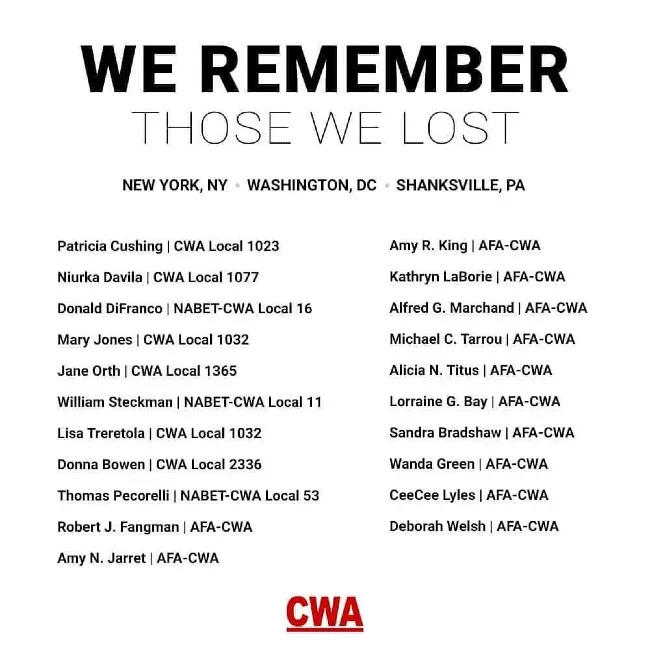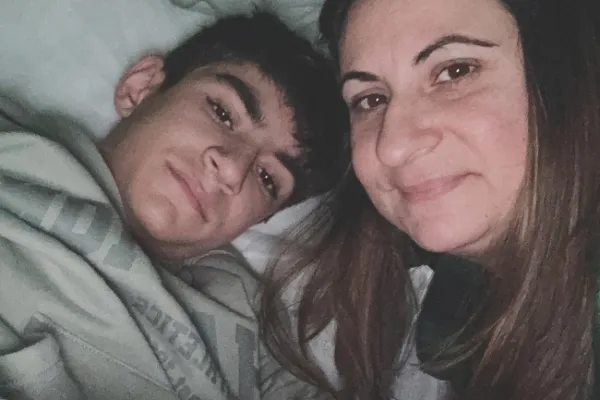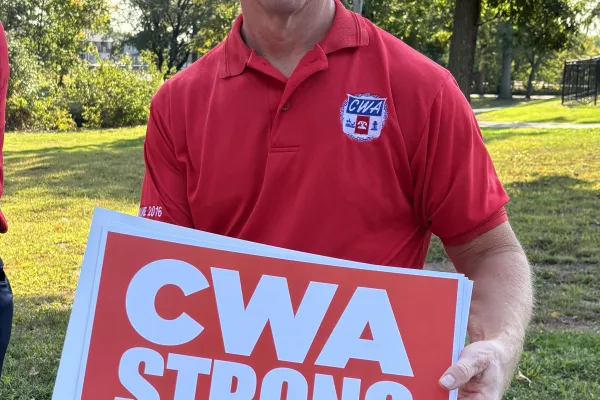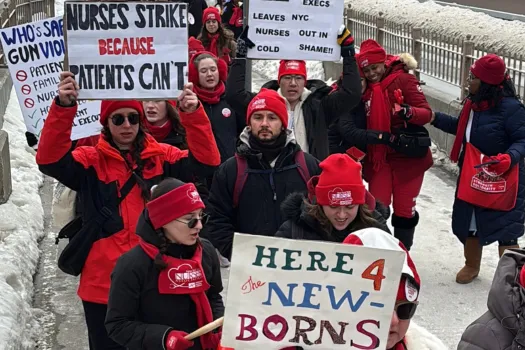Remembering Our Members Lost on September 11, 2001, and in the Years Since

September 11, 2025 marked the 24th anniversary of the 2001 September 11th attack in which 21 members of CWA, including members of CWA Districts 1 and 2-13, NABET-CWA, and AFA-CWA. We honor the CWA airline workers, telecom workers, nurses, 911 operators, traffic enforcement agents and supervisors, public sector members, broadcast engineers and news crews, journalists and media workers, volunteers, and all of those who played a crucial role in responding to this tragedy and rebuilding our country.
AFA-CWA, who lost twelve members who were flight attendants on the four hijacked planes used in the attacks, served their annual Honor Guard this year to place flowers at the Pentagon, the National 9/11 Memorial in New York City, and the Flight 93 National Memorial in Shanksville, PA and read out the names of flight attendants, pilots, and passenger service agents killed in the attacks.
The toll of the attacks extended beyond just one day, and thousands of responders and survivors are suffering from 9/11-related illnesses or have died from their conditions. There are currently over 136,000 responders and survivors enrolled in the World Trade Center Health Program (WTCHP), including many CWA members who worked in the area around the World Trade Center following its collapse. WTCHP quarterly reports can be found here.
The WTCHP, finally funded by Congress in 2010 after nine years of advocacy, is designed to provide medical coverage for those responders and survivors diagnosed with 9/11-related physical and mental health conditions. The program was reauthorized in 2015, with authorization expiring in 2090. However, increased costs have created an anticipated budget shortfall, which would begin to impact service as early as 2028. Bipartisan legislation in both the Senate and House has been proposed that would close the funding gap for the program through 2090.
Local 1180 Member Searches for Kidney Donor to Save Her Son
From the Desk of the Assistant to the Vice President of CWA District 1
10,000 New York State Nurses Association Members Win Strike in NYC; 5,000 More Press On, Entering Week Five


